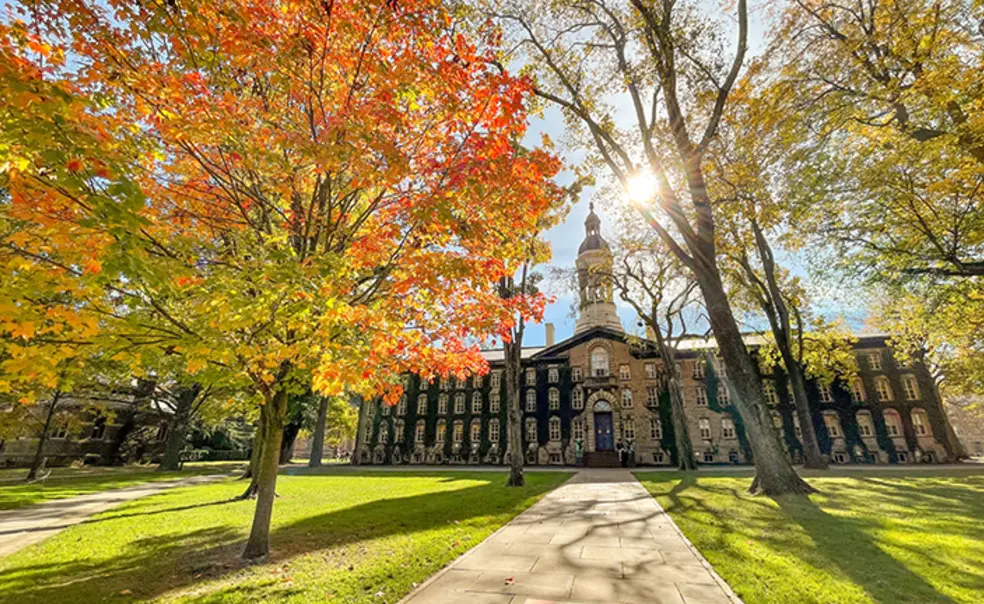Princeton Tops U.S. News Rankings for 13th Consecutive Year
Princeton was ranked No. 1 among national universities for the 13th consecutive year by U.S. News & World Report, which released its annual Best Colleges ranking Sept. 18. Princeton also finished first in the Wall Street Journal/College Pulse rankings, published in early September, and the Forbes list of America’s Top Colleges, published in late August.
In May, U.S. News announced revisions to its methodology that aimed to emphasize outcomes for graduating students. Updates included an increase in the weight placed on “graduating students from different backgrounds,” and removing several factors, including class size, students’ high school standing, faculty with terminal degrees, and alumni giving (a traditional strength for Princeton).
The changes had little effect on the top of the rankings, where Princeton was followed by MIT, ranked second, and Harvard and Stanford, which tied for third. But according to U.S. News, several schools saw significant rankings changes because of the new methodology: In a press release, it listed 20 colleges that each advanced at least 50 spots in the rankings.
University spokesman Michael Hotchkiss said in a statement to PAW, “Whatever rankings show from year to year, Princeton remains committed to contributing to the world through research and teaching of unsurpassed quality. What has changed this year is that more Princeton undergraduates are receiving more financial aid, thanks to the University’s enhanced aid program. About a quarter of undergraduates now pay nothing to attend Princeton, and 66% of newly enrolled students receive aid — including many from families with incomes up to and even beyond $300,000.”
Hotchkiss also recommended that prospective students “look beyond rankings and rely more on resources such as the Department of Education’s College Scorecard,” which provides statistics such as graduation and retention rates, post-graduation outcomes, average annual cost, and fields of study.
The Wall Street Journal rankings rely largely on two outcomes, graduation rates and graduate salaries. Princeton had the highest graduation rate of the schools ranked, and based on the Journal’s estimates, “it takes Princeton graduates less than a year’s worth of the median salary boost their degree provides to pay off the full cost of attendance, due to their high earnings and the relatively low net price of attendance.” Forbes wrote that its rankings focus on results as well as well, including graduation rates, graduate salaries, and “great outcomes for low-income students.”
Princeton ranked fifth among national universities in the Washington Monthly College Guide, released in late August, which rates institutions “based on their contribution to the public good in three broad categories: social mobility, research, and providing opportunities for public service.”












No responses yet